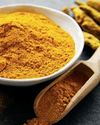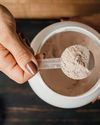يحاول ذهب - حر
Dandelion (Taraxacum officinale)
Issue 218
|WellBeing
An incredibly valuable medicinal plant, dandelion tastes bitter and salty. All parts of the plant can be used - root, leaves and flowers.

Historically, dandelion root and leaves have been used to treat liver and kidney problems across Native American, Chinese and European cultures.
Dandelion can be consumed in many ways: the root either as a casserole vegetable or roasted as a coffee alternative (two-year-old roots are best); the leaves and the flowers in salads and teas; and even the sap to reduce skin infections topically. As it grows so well in the Australian climate, dandelion is considered a weed, but nothing could be further from the truth. Grow some in your backyard and use it for its multiple health benefits.
Active ingredients
Dandelion has an abundance of bitter principles in all parts of the plant, as well as sterols structurally related to bile. It also contains an anti-allergy terpene and large amounts of polysaccharides, including inulin (a major prebiotic), pectin and various flavonoids. Flavonoid glycosides have been isolated from the flowers and leaves. The flowers are also high in luteolin, known for its anti-inflammatory activity. It has four times the provitamin A found in spinach, and more vitamin C than tomatoes. Chlorophyll, vitamins C and D, B vitamins and choline are present in dandelion. Its mineral content includes high levels of potassium and magnesium along with silicon, manganese, zinc, copper, iron and phosphorus.
Dandelion root
هذه القصة من طبعة Issue 218 من WellBeing.
اشترك في Magzter GOLD للوصول إلى آلاف القصص المتميزة المنسقة، وأكثر من 9000 مجلة وصحيفة.
هل أنت مشترك بالفعل؟ تسجيل الدخول
المزيد من القصص من WellBeing

WellBeing
In Season
These are the fruit and vegetables that are currently in season and so will be the freshest.
1 min
Issue 218

WellBeing
Navigating complementary medicines
For practitioners, quality and evidence matter more than ever. SFI Health is raising the bar with gold-standard formulations that don't compromise on clinical integrity.
5 mins
Issue 218

WellBeing
Too much of a good thing
Even well- intentioned health choices can sometimes contribute to unexpected problems.
3 mins
Issue 218

WellBeing
What we've been up to
WellBeing's editor Dana has been soaking up slow moments of warmth this winter.
1 min
Issue 218

WellBeing
Could creatine have a dark side?
Creatine is a multitalented wonder potion we all need to protect us against the ravages of ageing.
3 mins
Issue 218

WellBeing
ACS Distance Education
The secret to a successful career.
3 mins
Issue 218

WellBeing
Yoga for Energy Vampires
In yoga, prana is our life force and acts as a bridge between universal consciousness and matter.
8 mins
Issue 218

WellBeing
Chinese medicine dietary therapy
Food therapy may augment TCM herbal therapy or sustain improvements after herbal treatments have ceased. It may also be used in prevention, to nourish health and prolong life.
3 mins
Issue 218
WellBeing
AcuEnergetics®
AcuEnergetics received widespread attention in the media when founder Kevin Niv Farrow treated the captain of the NSW State of Origin team Boyd Cordner for a calf injury. Since then, the unique treatment modality has continued to capture the attention of other high-profile sports stars.
1 mins
Issue 218

WellBeing
Honouring a legacy in aromatherapy
Our oils are extracted with precision and care to ensure the active plant compounds remain intact, preserving the therapeutic benefits from field to bottle.
3 mins
Issue 218
Listen
Translate
Change font size
